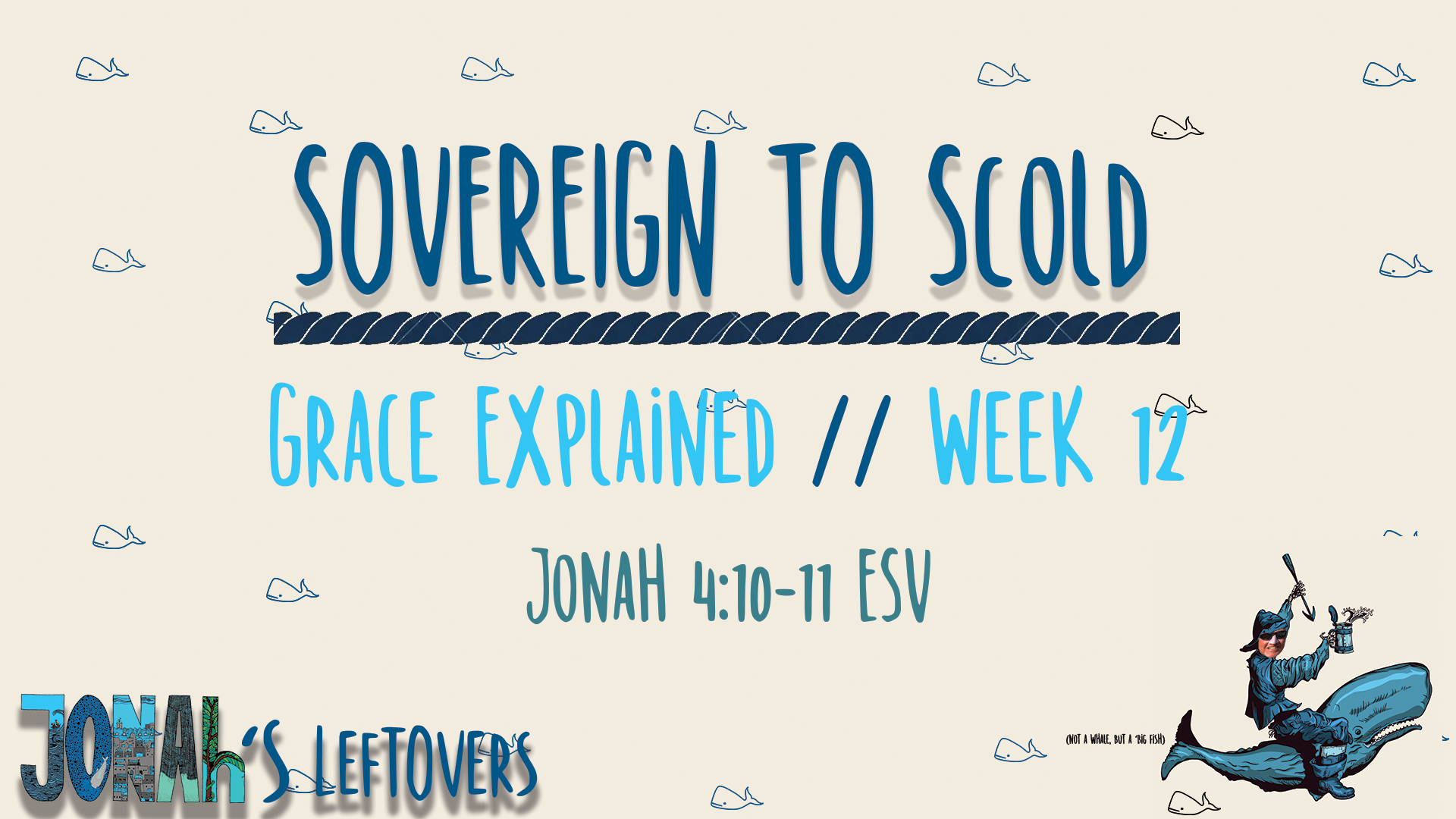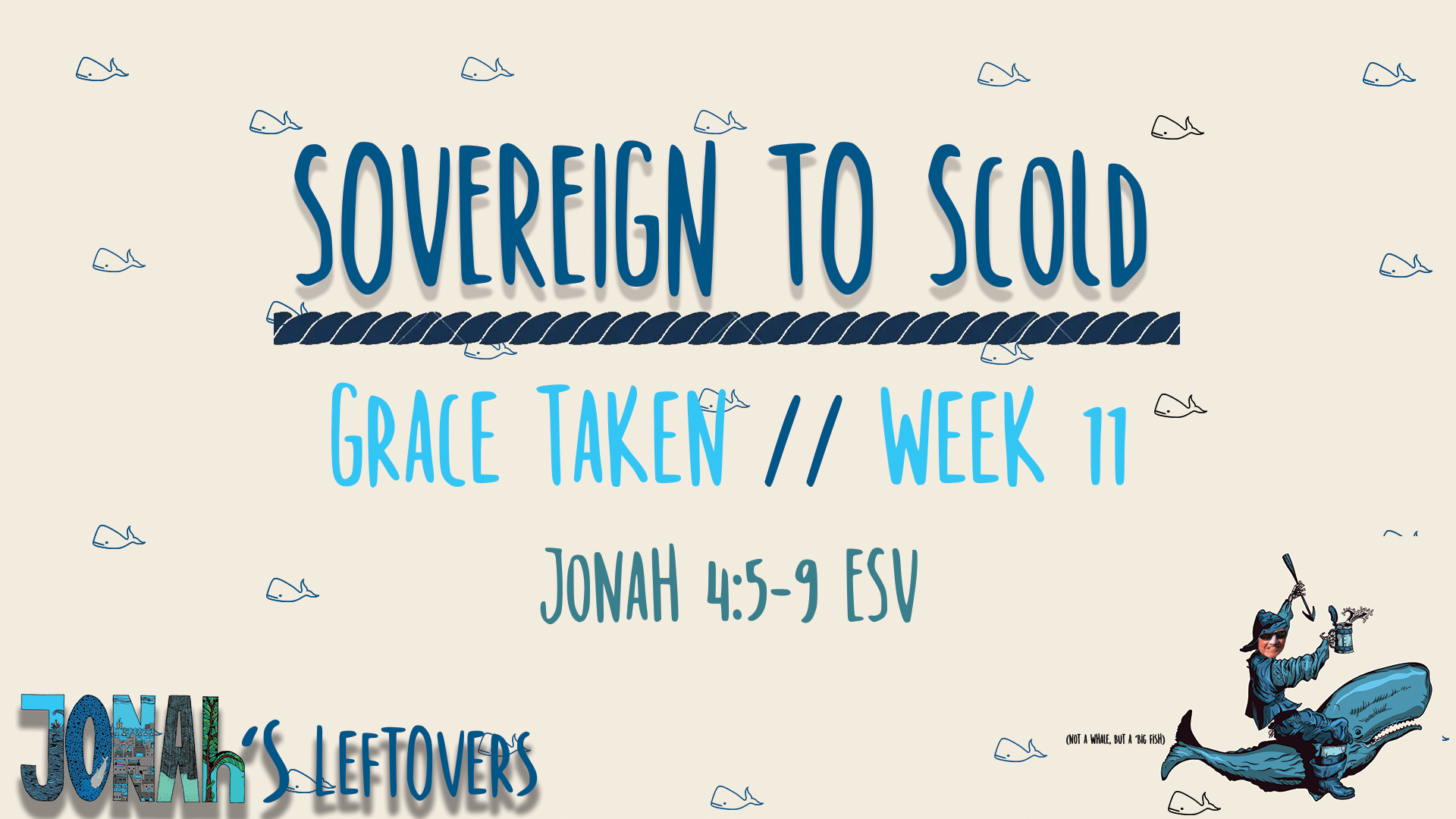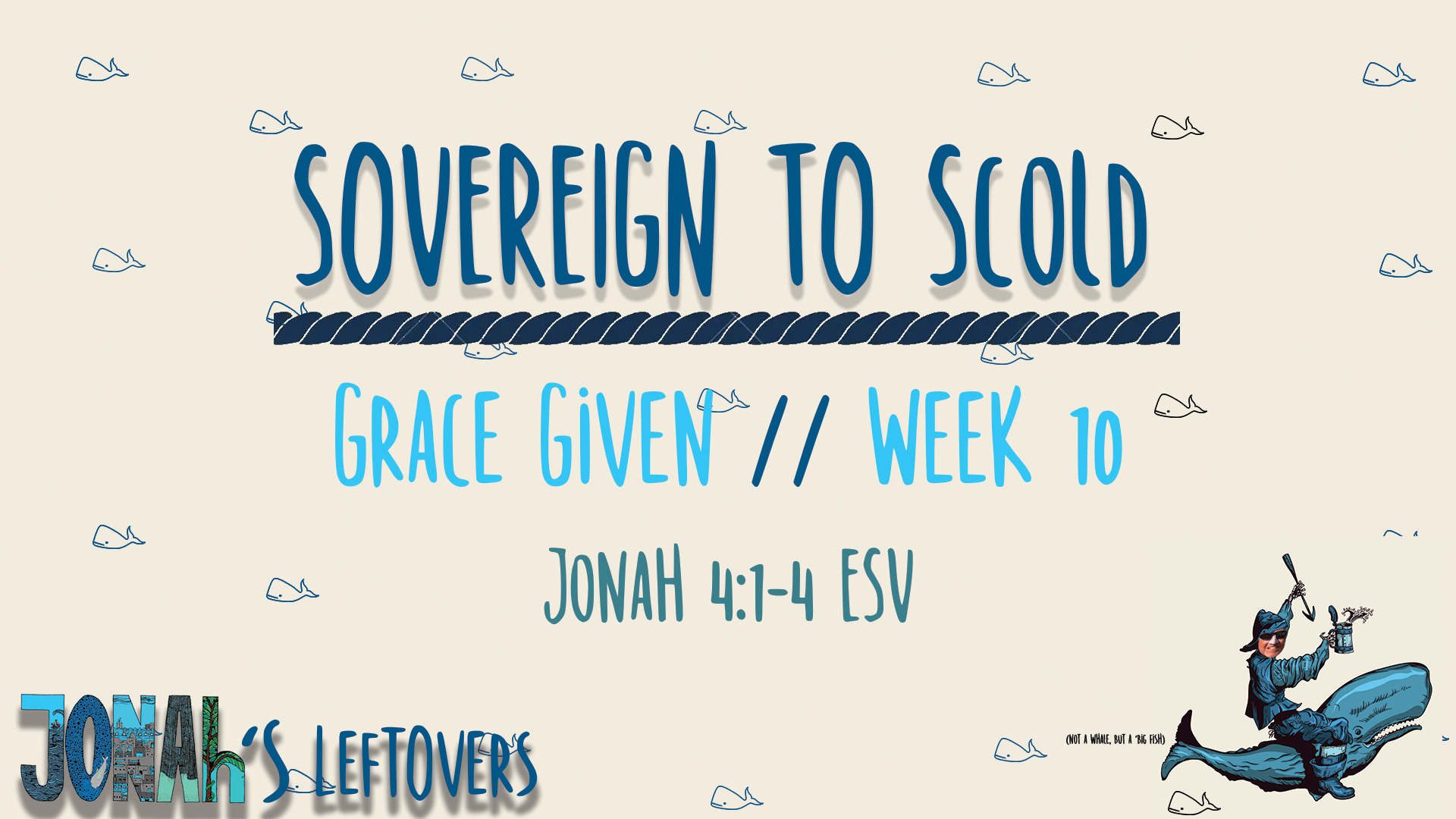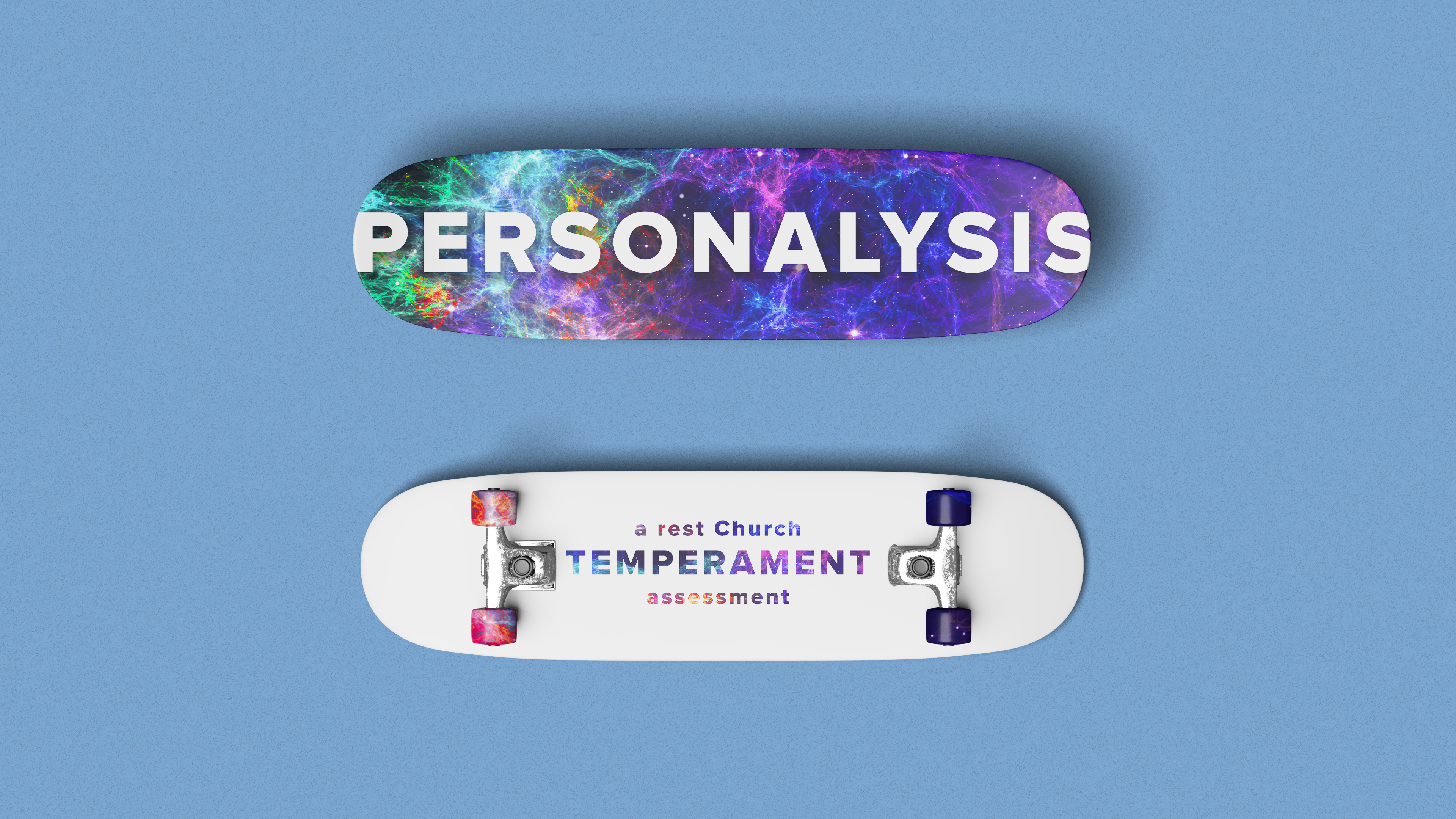Home » Jonah’s Leftovers // Jonah 4:5-9
Jonah’s Leftovers // Jonah 4:5-9

Sovereign To SCOLD // Grace taken
"5Jonah went out of the city and sat to the east of the city and made a booth for himself there. He sat under it in the shade, till he should see what would become of the city. 6Now the Lord God appointed a plant and made it come up over Jonah, that it might be a shade over his head, to save him from his discomfort. So Jonah was exceedingly glad because of the plant. 7But when dawn came up the next day, God appointed a worm that attacked the plant, so that it withered. 8When the sun rose, God appointed a scorching east wind, and the sun beat down on the head of Jonah so that he was faint. And he asked that he might die and said, “It is better for me to die than to live.” 9But God said to Jonah, “Do you do well to be angry for the plant?” And he said, “Yes, I do well to be angry, angry enough to die.” ~Jonah 4:5-9 ESV
BACKGROUND
From the previous weeks text we now learn where Jonahs motives have been the entire time. He quotes God’s own description of Himself from Exodus 34. (Gracious God and merciful, slow to anger and abounding in steadfast love.) We’ve learned that Jonah knows that the heart of God is to relent and to not cause destruction on Nineveh and its people…
However, due to the horrible affliction that the Assyrians had placed on the Israelites for years, Jonah did not want restoration for these enemies. Scripture says that he was “exceedingly displeased.” Even to the point of telling God that he would rather die than see his enemies repent and learn of the Lord’s salvation. We finished up last week in verse 4 with God asking Jonah where his justification is in being angry?
VERSE 5
Jonah went out of the city and sat to the east of the city and made a booth for himself there. He sat under it in the shade, till he should see what would become of the city.
SUB CATEGORY
VERSE 6
Now the Lord God appointed a plant and made it come up over Jonah, that it might be a shade over his head, to save him from his discomfort. So Jonah was exceedingly glad because of the plant.
SUB CATEGORY
Other examples of root word ra’ and where they are used in Jonah:
1:2 Arise and go to Ninevah for their “evil” has come up before me
1:7 The sailors said to one another, lets cast lots to see on whose account this “evil” has come upon us.
1:8 after the sailors cast lots and the lot fell on Jonah. The sailors ask him again to tell them why this “evil” has come upon them.
3:8 King Nimrod is demanding that the city turn from their “evil” ways and from the violence in their hands
3:10 God see’s the city turn from their “evil” and he relents from the “disaster” he was sending against them.
4:1 God’s gracious response to Nineveh “displeased” Jonah greatly
4:2 Jonah’s anger rises from the fact that God relents from “disaster”
After looking at these verses and seeing all this context we really start to understand the severity and evil condition of Jonah’s heart and the significance of why God chose this language to describe it!!
The first time we see this word “exceedingly” in Jonah is when it was used to describe how unhappy Jonah was in chapter 4:1 with the Lord.. He was displeased because he knew that God would relent his anger and the city would repent. He did not want God’s grace and mercy for his enemies.
The second time this word was used in chapter 4:6 and it is showing how happy Jonah was when mercy and salvation were being shown to him through God raising up the plant in a day.
Can’t we all relate here? From this perspective today it’s easy to beat up on ole Jonah and think he looks childish. However, If we are being honest with ourselves then isn’t it really easy sometimes to want great things from God for ourselves but we get upset when we see someone else being blessed with great things too? “ Or maybe someone has sinned against you and you are having to learn mercy in this place that you’re in as you forgive them? It’s much easier to receive and understand God’s mercy for yourself than it is to give it.
Does anyone know why that is?? It’s because truly giving someone mercy costs the giver something. If it doesn’t cost the giver anything then it isn’t mercy.
VERSE 7 + 8
But when dawn came up the next day, God appointed a worm that attacked the plant, so that it withered. When the sun rose, God appointed a scorching east wind, and the sun beat down on the head of Jonah so that he was faint. And he asked that he might die and said, “It is better for me to die than to live.”
SUB CATEGORY
We see the 4 times in the book of Jonah that this verbiage was used to show the ultimate Sovereignty of God and His plans to carry out every detail of our lives.
God appointed the fish. 1:17 (rescue from death, direction, humility and submission)
God appointed the plant 4:6 (to provide comfort and to save us from our evil hearts and to show us that he is the only absolute source of comfort)
God appointed a worm 4:7 (the worm comes to take away our comfort so that God can be glorified through building our character in Him even when things aren’t going well)
God appointed a scorching, dry, east wind 4:8 (He uses all circumstances to break the pride of man and to drive us back to a heart that is compassionate and understanding of grace and mercy.)
We still see Jonah angry and upset enough here to wish death upon himself rather than surrendering his thoughts and emotions to God. Which shows us that GOD WILL sacrifice your comfort for the sake of your character.
Romans 5:3-5 – We glory in our sufferings because we know that suffering produces perseverance, perseverance produces character, character produces hope, and hope does not put us to shame, because God’s love has been poured out in our hearts through the Holy Spirit that has been given to us.
VERSE 9
But God said to Jonah, “Do you do well to be angry for the plant?” And he said, “Yes, I do well to be angry, angry enough to die.”
SUB CATEGORY
SUMMARY
Have you downloaded The app?!
Check out your unique God-wiring
CHURCH IS MORE
than sunday

Jonah’s Leftovers // Jonah 4:10-11

Jonah’s Leftovers // Jonah 4:5-9


